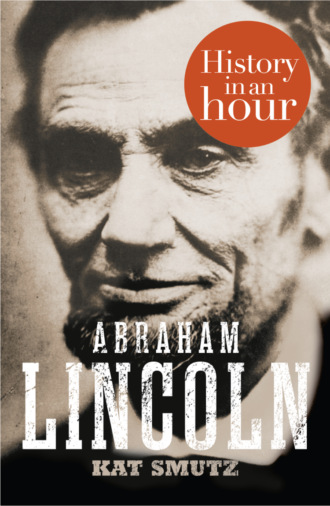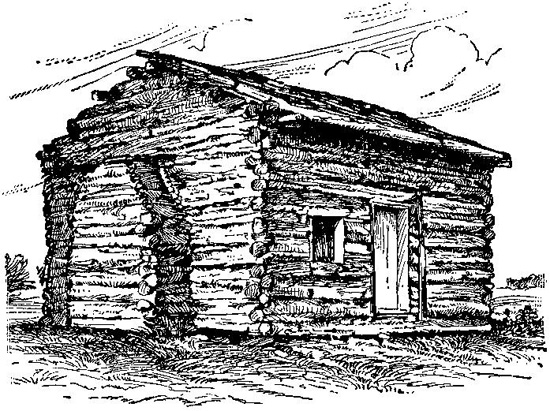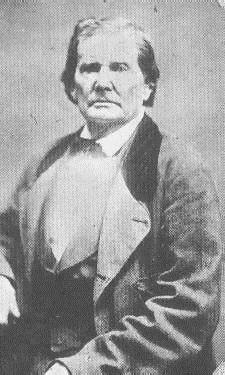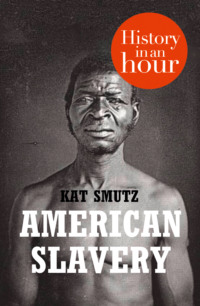
Полная версия
Abraham Lincoln: History in an Hour

ABRAHAM LINCOLN History in an Hour
Kat Smutz

Contents
Cover
Title Page
Introduction
The Roots of Leadership
The Rail Splitter and Honest Abe
From Childhood to Manhood
A Politician is Born
Life, Love and Marriage
The Politics of Slavery
The Birth of a Political Party
Life in the White House
The Politics of War
A Presidential War
Emancipation Proclamation
Re-election and Political Maneuvring
The War is Won
A New Beginning and a Tragic End
Assassins and Conspirators
The Failure of Reconstruction
The Lincoln Legacy
Appendix 1: Key Players
Appendix 2: Gettsyburg Address (The Hay Copy)
Appendix 3: Timeline
Copyright
Got Another Hour?
About the Publisher
INTRODUCTION
Ask any American schoolchild who the greatest president of the United States was, and he or she will probably say ‘Abraham Lincoln’. Teachers love to use Lincoln as an example of how the circumstances of birth do not necessarily predetermine what an individual can achieve. From a childhood of poverty, hardship and loss in the American wilderness, Lincoln achieved the highest political office in the country, a position comparable to that of a king or queen in Europe. His popularity can be attributed to what he accomplished while in office. His emancipation of African Americans held in slavery has made him the legendary hero who freed the slaves. But Abraham Lincoln was so much more.
Not all of Lincoln’s contemporaries saw him as the hero Americans look up to today. Public opinion of the man during his lifetime ranged from hero worship to declaring him to be evil incarnate. Any given individual’s opinion of the sixteenth president was often influenced by region, race, economics and social class as much as by politics. To slaveholders, he was a threat to their very way of life. They were well aware of Lincoln’s position on the issue of slavery and feared that if slavery ended, the agrarian economy in the South would collapse. To the African-American slaves who looked to Lincoln for their salvation he was Father Abraham, sent by God himself to free them from their oppressors.
As a young man, Lincoln earned a reputation for honesty, justice and intellect that endures to this day. He was a master storyteller, a master litigator and a great orator whose words are still quoted. In the political arena, his supporters saw his potential. In spite of being a self-taught, successful attorney, his detractors in both the North and the South saw him as a low-class, uneducated, uncouth barbarian from the wilderness. Some were certain that he would cause the fledgling nation, less than one hundred years old, to tear itself apart. Others were just as sure that he was the only hope of preserving it.
Lincoln left behind a legacy of political ‘firsts’. He initiated the first military draft and the first United States income tax, and was the first to allow African Americans to join the military. Lincoln has been given credit for establishing photojournalism by permitting photography of battlefields and military installations. He was also the first American president to be assassinated.
From his first attempt to run for public office, Lincoln’s political career is well documented. What we know of his life before politics comes primarily from those who knew him. Lincoln seldom spoke of his life as a young boy growing up in the wilderness of Kentucky and Indiana, losing his mother at a young age and his first business ventures. Even less is commonly known of his private life as a husband and father. Those close to Lincoln often commented that he seldom spoke of his life before he became president.
Family, friends, colleagues and even enemies have left behind their own accounts of Lincoln, told from their own viewpoints. Those accounts, along with Lincoln’s own papers, have been studied and written about by Lincoln scholars, and provide the bulk of the details about one of history’s most recognized icons. Among them, some of the answers can be found regarding the conditions that moulded Abraham Lincoln into one of the greatest leaders in the history of the United States, if not the world.
This, in an hour, is the life of Abraham Lincoln.
THE ROOTS OF LEADERSHIP

Drawing of log cabin where Abraham Lincoln was born. The actual cabin still stands inside a memorial at Lincoln Birthplace National Historic Park near Hodgenville, Kentucky.
For generations, the life of Abraham Lincoln has been passed along to American schoolchildren as a motivational story of how hard work, honesty and perseverance can lead to great things. The traditional Lincoln legend goes something like this.
Lincoln grew up in a log cabin in Kentucky. His family was poor and he educated himself by walking miles to the homes of neighbours to borrow books. As an adult, he fostered a reputation for honesty and fairness which continued to follow him throughout his life. It was his natural likeability and talent for oration that led him into politics. This was the beginning of the road that would lead Lincoln to the White House (known as the Executive Mansion). It is the ‘rags to riches’ story of an uneducated young man from a poor family who, with no prospects, rises to hold the highest office in the land.
So, how did Abraham Lincoln become an icon after beginning life in a log cabin on what was then America’s frontier?
While Lincoln’s roots ran deep to a wealthy family in Virginia, his own family was far from affluent. Lincoln was the namesake of his grandfather, Abraham Lincoln, who had come to the wilderness that was then Kentucky. There, a man with little or nothing could carve out his own life for himself and his family.
The first Abe Lincoln in Kentucky was able to purchase a large tract of wilderness acreage. Unfortunately, he would not live to make his family rich. While clearing land with his three sons in 1784, he was killed by Indians. As one brother, Josiah, ran for help, the eldest, Mordecai, ran to the family homestead where he grabbed a rifle. He held off the Indians until help arrived. At some point during the skirmish, the youngest son, Thomas, was almost attacked. He was saved when Mordecai shot dead the Indian who was about to kill his brother. This little brother, Thomas, would be the father of Abraham Lincoln.
The death of the senior Abraham Lincoln was the event that sent the Lincolns even deeper into debt. Abraham’s wife, Mary Lincoln, was now a widow with five children to care for. She was forced to sell most of their land, a reported 1,700 acres. As was the tradition in those days, what little was left went to Mordecai, the eldest son. That left Thomas Lincoln with little more to take out into the world than his own two hands. He put them to good use, learning the carpentry trade.

Thomas Herring Lincoln
Thomas Lincoln was working in a carpentry shop in Elizabethtown, Kentucky, when he met the owner’s niece, Nancy Hanks. Nancy was the daughter of Lucy Hanks and had been born in a part of West Virginia which, at the time, was still a part of the state of Virginia. Family histories claim that Nancy’s mother was Lucy Shipley, and that she was never married to Nancy’s father, who is reported to have been a man named James Hanks.
Young Nancy lived first with her grandparents, Joseph and Ann Hanks, until her grandfather’s death. She lived with her mother for a time after Lucy’s marriage to a man named Henry Sparrow, then with Lucy’s sister, Elizabeth, who had married Henry’s brother, Thomas. At some point, she went to live in the home of Richard Berry, working as a seamstress. This is where Thomas Lincoln is said to have proposed.
Nancy was 23 when she married Thomas Lincoln and the couple moved into a home in Elizabethtown, Kentucky. It was there that a daughter, Sarah, was born. Little is known of Sarah Lincoln’s life. It would, no doubt, have been similar to her brother’s. She looked after her brother and a cousin, Dennis Hanks, between the time of her mother’s death and her father’s second marriage. In August 1826, Sarah married Aaron Grigsby, but her married life was brief. She died after only one year, on 20 January 1828, in childbirth.
Some time after Sarah’s birth and before Abraham’s, Thomas Lincoln decided his growing family needed a larger home. They moved to a farm about three miles from Hodgenville, Kentucky. Thomas was said to be an easy-going man without ambition, that he did work, but only as much as was needed to support the basic needs of his family. The rocky ground of the farm, which had been purchased on credit, failed to yield enough to support the family, and their financial situation worsened.
It was at this farm that Abraham Lincoln was born on 12 February 1809. Like most children of families in the American wilderness at that time, the home he lived in was a log cabin. Their life was so isolated the family was hardly aware that the war of 1812 with Britain had taken place. Days, for families like the Lincolns, were spent trying to scrape enough from the land to survive. The passage of time was marked by the change of seasons, when it was time for spring planting, summers spent doing work outside, fall harvesting and dormant winters spent working inside. Sundays were a day of rest for Christian families, even when there was no church nearby.
The loss of his younger brother, the move to Indiana, the death of his mother and the arrival of a stepmother were all typical of wilderness families in Lincoln’s time. Aside from his thirst for books, there was nothing to indicate that young Abraham Lincoln would ever be more than a country farm boy.
Конец ознакомительного фрагмента.
Текст предоставлен ООО «ЛитРес».
Прочитайте эту книгу целиком, купив полную легальную версию на ЛитРес.
Безопасно оплатить книгу можно банковской картой Visa, MasterCard, Maestro, со счета мобильного телефона, с платежного терминала, в салоне МТС или Связной, через PayPal, WebMoney, Яндекс.Деньги, QIWI Кошелек, бонусными картами или другим удобным Вам способом.



